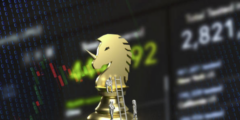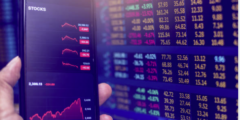4 Steps to Becoming a Forex Trader
Becoming a Forex trader involves a learning process and a gradual progression towards developing the necessary skills and knowledge to navigate the currency markets effectively. Here are four steps to guide you on your journey to becoming a Forex trader :
1. Education and Knowledge Building:
The first step is to acquire a solid understanding of the Forex market and how it operates. Educate yourself about the basic concepts, terminology, and trading mechanics involved in Forex trading. Key areas to focus on include:
a. Market Basics: Learn about currency pairs, exchange rates, bid/ask prices, and the factors that influence currency movements.
b. Fundamental Analysis: Study economic indicators, central bank policies, geopolitical events, and other factors that impact currency values.
c. Technical Analysis: Familiarize yourself with chart patterns, technical indicators, support and resistance levels, and other tools used for analyzing price movements.
d. Risk Management: Understand the importance of risk management techniques, including position sizing, stop-loss orders, and risk-reward ratios.
There are various educational resources available, such as online courses, books, webinars, and trading forums. Take advantage of these resources to build your knowledge foundation.
2. Practice with Demo Accounts:
Once you have acquired the basic knowledge, it’s important to gain practical experience in a risk-free environment. Open a demo trading account with a reputable Forex broker and use virtual money to simulate real trading conditions. This allows you to practice executing trades, testing different strategies, and familiarizing yourself with the trading platform’s features.
Use the demo account to refine your trading skills, develop a trading plan, and gain confidence in your abilities. Monitor your performance, analyze your trades, and learn from your successes and failures.
3. Develop a Trading Plan:
A trading plan is a personalized framework that outlines your trading goals, risk tolerance, trading strategies, and money management rules. It serves as a roadmap for your trading activities and helps you make disciplined and consistent trading decisions. Consider the following elements when developing your trading plan:
a. Trading Strategy: Decide on the trading approach that aligns with your personality and goals. Will you focus on day trading, swing trading, or long-term investing? Will you primarily use fundamental analysis, technical analysis, or a combination of both?
b. Risk Management: Determine how much capital you are willing to risk on each trade, set appropriate stop-loss levels, and establish a risk-reward ratio that aligns with your risk tolerance.
c. Trading Schedule: Define the timeframes and trading sessions you will focus on based on your availability and market preferences. Will you trade during specific market hours or around important news releases?
d. Record Keeping: Establish a system for documenting your trades, including entry and exit points, reasons for taking each trade, and performance analysis. This will help you review and improve your trading over time.
4. Start Trading with Real Money:
Once you have gained confidence and consistently demonstrated profitability in your demo trading, you may consider transitioning to live trading with real money. However, it’s crucial to start with a small amount of capital that you can afford to lose.
Choose a reliable Forex broker that offers a suitable trading account and funding options. Begin with conservative position sizes and stick to your trading plan. Emotions can have a significant impact on trading decisions, so it’s important to maintain discipline and follow your predefined strategies.
Continuously evaluate and refine your trading approach based on your experiences and market conditions. Stay informed about market developments, continue learning, and adapt your strategies as necessary.
Remember, becoming a successful Forex trader takes time, patience, and continuous learning. It’s essential to manage your expectations and approach trading as a long-term journey of skill development and adaptation to ever-changing market dynamics.








